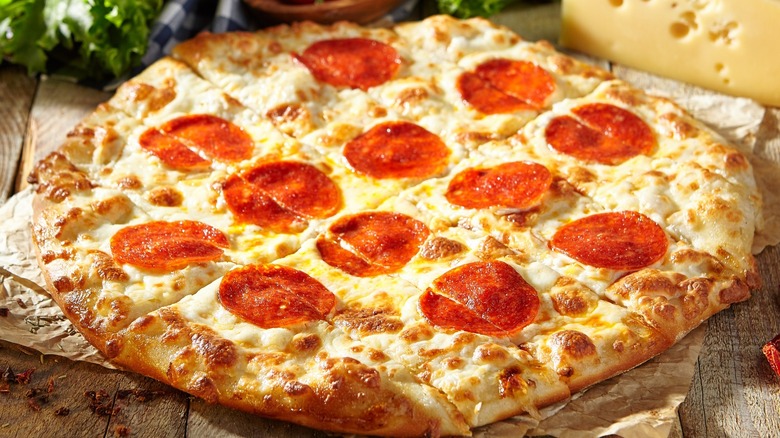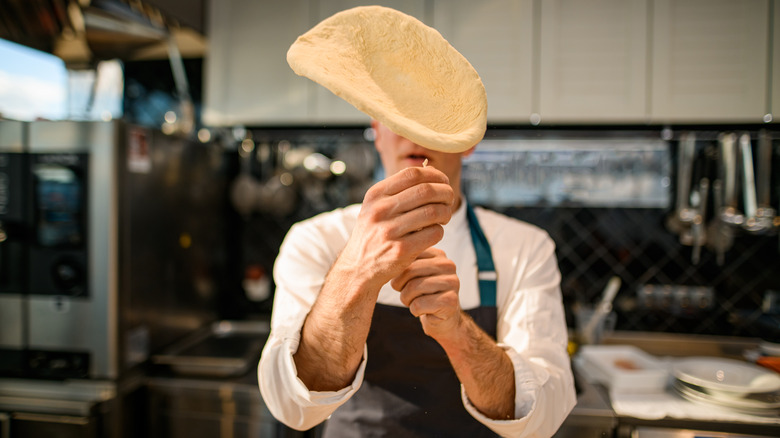Why It's A Mistake To Roll Out Your Pizza Dough
While you may think it stereotypical to be throwing your pizza dough in the air to stretch it out, like a main character in a movie or the cook behind the counter at your favorite pizza place, there is a reason the stereotype exists. And you may seem silly stretching it out by hand, or giving it a toss or two, but stretching the dough by hand can get you the best results when making a homemade pizza. Stretching your pizza out is the more traditional way of preparing your crust, dating back to the 1800s and the classic recipe for Neapolitan pizza (via Pizza Companion).
Rolling out your pizza dough with a rolling pin, whether it's homemade or frozen from your local grocery store, can ruin the way your dough bakes in the oven. If you're looking for a more New York-style pizza, rolling your dough out is not the way to go. And while rolling the dough out seems easier, it defeats the whole purpose of letting your dough proof before building it (via Crust Kingdom). So why is it a mistake to roll out your pizza dough?
Rolling dough can make it dense
Although rolling your dough out won't cause any harm to your pizza, it may not give you the final product you're looking for in a pie. The two ways you shape out your pizza dough are rolling or stretching. The idea behind stretching your pizza out is that it will be handled more delicately, meaning the air bubbles that are produced in there during the proofing process won't get lost in the shaping out process. Whereas rolling it out will deflate everything that has built up while the dough was proofing.
During the dough's fermentation process, the yeast uses sugar in the dough to produce carbon dioxide (CO2). The CO2 expands when heated, producing a leavened product, i.e. fluffy pizza dough. When using a rolling pin to shape your dough, the pockets of CO2 get expelled from the dough, meaning the dough won't rise the way you want it to — if thicker, fluffier dough is what you're looking for (via Pizza Companion). Rolled dough is chewier and denser than a stretched dough, which isn't usually what we are looking for in the best homemade pizza dough.

